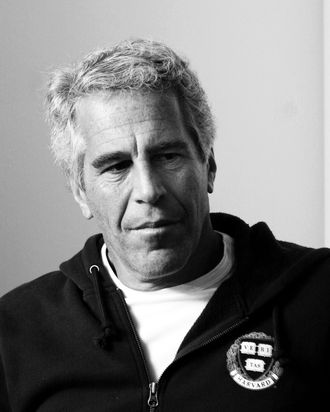
A recent New York Times story revealed that Jeffrey Epstein, alleged sex trafficker and megarich financier, has long held beliefs in transhumanism, defined by the Times as “the science of improving the human population through technologies like genetic engineering and artificial intelligence.” But what does that mean, and what would it entail?
What does Jeffrey Epstein have to do with transhumanism?
For his part, Epstein hoped to spread his DNA throughout the human race by impregnating women at his New Mexico ranch — presumably under the assumption that his DNA is somehow superior to the average human’s. Epstein was able to attract a number of prominent scientist friends, including George M. Church, a Harvard professor and geneticist who has done work on synthetic genes, and evolutionary biologist Stephen Jay Gould (now deceased).
According to the Times, Epstein was able to lure scientists into his circle through lavish spending, both personally and professionally, in the form of research donations. The Times story suggests that Epstein’s money encouraged some scientists to lend credence to Epstein’s transhumanist ideals, though others insist they remained critical. (Harvard cognitive psychologist Steven Pinker called him an “intellectual impostor.”)
Where did Epstein get these ideas?
According to the Times, the scientist and author Jaron Lanier said that a NASA scientist he once met at one of Epstein’s dinner parties told Lanier that Epstein had been inspired by the story of the Repository for Germinal Choice, an “elitist sperm bank” created in 1980 with the express goal of strengthening the human gene pool with the sperm of Nobel Prize winners. Though 200 babies were eventually born of the bank’s efforts, none were the offspring of actual Nobel winners, and the repository shut down in 1999. Mr. Lanier said that he had the impression that Epstein used his exclusive dinner parties as a way to “screen” female guests for their potential to bear Epstein’s children.
Are there other transhumanists out there?
Apparently. In 2011, one of Epstein’s charities gave $20,000 to an organization then called the Worldwide Transhumanist Association. Now rebranded as Humanity Plus, the website defines transhumanism as the desire for “people to be better than well.” Humanity Plus is primarily an educational organization, hosting conferences and leadership summits on topics related to transhumanism. Their site includes a page dedicated to the “Transhumanist Declaration,” which includes the statement: “We believe that humanity’s potential is still mostly unrealized. There are possible scenarios that lead to wonderful and exceedingly worthwhile enhanced human conditions.”
Epstein’s foundation (now defunct) also paid $100,000 salary to Humanity Plus’s vice chairman, Ben Goertzel.
What does transhumanism have to do with eugenics?
Critics of transhumanism have compared the philosophy to eugenics, the discredited and ill-used belief that controlled breeding could improve the human race. Alan M. Dershowitz, a professor emeritus of law at Harvard, told the Times that conversations Epstein initiated with him called to mind the Nazis’ use of eugenics as justification for genocide. (Dershowitz, nonetheless, represented Epstein in court preceding his 2008 conviction on charges of soliciting prostitution from a minor.)
The difference between transhumanism and eugenics, then, is that transhumanism does not explicitly encourage controlled human breeding, nor the propagation of a particular race. Still, both movements envision a “superior” human race, a goal which (history indicates) is inseparable from sociocultural ideals and prejudices.
Does the field of transhumanism have any scientific credibility?
There is certainly interest: A recent study published in Nature Nanotechnology examined the potential for “intersection between humans and machines,” according to one of its authors, Dr. Yunlong Zhao from the Advanced Technology Institute at the University of Surrey.
Anqi Zhang, another of the study’s authors, told The Independent he expects “significant advancement in the next 10 to 15 years” in the transhumanist field — specifically, the interface between man and machine, as recently depicted on the BBC show Years and Years.
At present, though, the technology required to complete such a transhumanist goal does not exist, which, as The Week reports, has encouraged some scientists to pursue cryogenic preservation, or freezing their bodies until such technology exists. (Cryogenic preservation is, itself, a scientifically dubious endeavor.)
An unnamed transhumanist told the Times that Epstein had told him he wanted his head and his penis to be cryogenically frozen.





